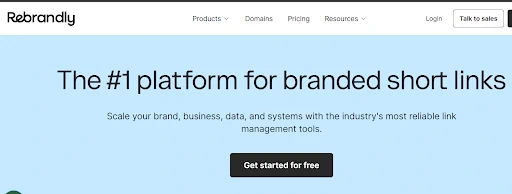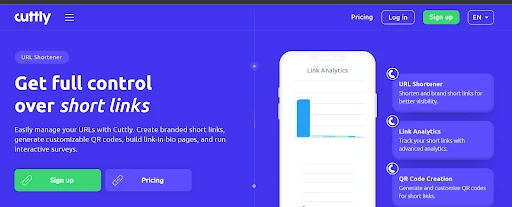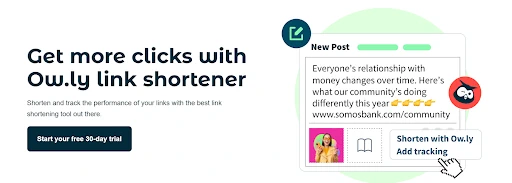In the world of search engine optimization (SEO), every detail can improve website ranking and user experience. One of the often overlooked aspects of SEO is the structure of URLs, specifically the use of short URLs. Short URLs are concise, easy-to-read, and user-friendly links that can significantly enhance your website’s visibility and performance. This article will explore how short URLs can benefit SEO, why they matter, and how to implement them effectively.
Contents
What Are Short URLs?
A short URL is a compact version of a web address that typically uses fewer characters while retaining the necessary information to identify the webpage. For example, a URL like “https://www.example.com/articles/how-to-improve-seo” could be shortened to “https://exmpl.co/seo-tips.” The goal is to make the URL easier to share, more memorable, and optimized for search engines.
URL shortening tools like Bitly and TinyURL, as well as custom short links from businesses or organizations, commonly generate short URLs. Short URLs are often used in social media posts, email marketing campaigns, and digital ads, where space is limited and a clean, readable link is crucial.
The Relationship Between Short URLs and SEO
While URL shortening has become synonymous with convenience, it also plays a pivotal role in SEO. Here’s how short URLs contribute to SEO success:
1. Improved User Experience
A clean and concise URL is more appealing to users, making them more likely to click on the link. When URLs are too long or contain random characters, they can appear spammy or untrustworthy, causing potential visitors to avoid clicking. On the other hand, short URLs are easier to share, read, and remember, which enhances the overall user experience. A positive user experience can lead to more clicks, lower bounce rates, and increased traffic to your website—all of which are beneficial for SEO.
2. Increased Click-Through Rate (CTR)
The simpler and more attractive a URL is, the more likely it is to be clicked. This can be particularly important when it comes to sharing links on social media platforms, where brevity is essential. Short URLs are often more visually appealing and encourage users to engage with your content, which can result in a higher click-through rate (CTR). Search engines like Google use CTR as a ranking factor, so boosting your CTR with short URLs can positively impact your SEO rankings.
3. Better Mobile Optimization
With the increasing use of mobile devices for internet browsing, URLs must be optimized for mobile viewing. Long URLs can be cumbersome to share or display on mobile screens, especially in messaging apps or social media posts where character limits are common. Short URLs fit better on smaller screens and are easier to copy and paste, making them more mobile-friendly. The ease of use improves the chances that your links will be shared and clicked on mobile devices, which can indirectly improve your website’s SEO performance.
4. More Shareable and Trackable Links
Short URLs are often more shareable than long, cumbersome web addresses. Whether you’re sharing a link on social media, in an email campaign, or through messaging apps, short URLs are more user-friendly and less likely to be truncated. They also look cleaner, giving users more confidence in clicking the link.
In addition, many URL shortening services provide analytics and tracking capabilities, allowing you to monitor the performance of your links. You can track metrics such as how many clicks your link received, the geographical location of the audience, and which platforms were used to click the link. This data is valuable for understanding how your audience engages with your content, allowing you to adjust your SEO strategies accordingly.
5. Keyword Optimization
In some cases, short URLs allow for better keyword optimization, which can directly impact SEO. Instead of using generic or random alphanumeric codes in your shortened URL, you can customize the URL to include targeted keywords related to your content. For example, instead of using “https://bit.ly/abc123,” you could create a custom URL like “https://bit.ly/seo-tips-guide.” Including relevant keywords in your URL can help search engines understand the context of your content and improve its chances of ranking for those keywords.
6. Easier to Use in Print and Media
Although the majority of online traffic comes from digital channels, short URLs are also beneficial for print media, where space is limited. In printed materials like brochures, posters, or flyers, short URLs are easier to fit, look cleaner, and provide a better user experience. This can also drive offline engagement with your online content, indirectly boosting your SEO performance.
Short URLs and SEO Best Practices
While short URLs are beneficial for SEO, it’s important to follow best practices to ensure they are implemented effectively. Here are some tips to make the most out of short URLs for SEO:
1. Keep It Relevant
Short URLs should still be relevant to the content they link to. Avoid using vague or generic terms in your short URLs that don’t provide users or search engines with any valuable context. For example, instead of shortening a URL to something like “https://bit.ly/xyz123,” use something descriptive like “https://bit.ly/seo-tips-guide.” Relevance matters both for users and search engines, as it can affect how your page is ranked.
2. Include Target Keywords
If possible, include target keywords in your short URLs. This helps reinforce the relevance of the content and signals to search engines what the page is about. However, don’t overstuff keywords in your URLs—keep them natural and readable. An overly keyword-stuffed URL can come across as spammy and may negatively impact user trust and SEO performance.
3. Avoid Using Too Many Parameters
Avoid including unnecessary parameters in your URLs, as they can make your link appear cluttered and complicated. Parameters often add unnecessary characters to a URL, making it harder to read and share. For example, “https://www.example.com/articles/?id=12345&ref=abc&source=email” is unnecessarily long and complicated. Instead, aim for a clean URL like “https://www.example.com/articles/seo-guide.”
4. Use Custom Short URLs
Many URL shortening services offer the option to create custom short URLs. This is a great way to make your link even more brandable, memorable, and relevant to your content. By using a custom domain (such as “https://brand.co/seo-tips”), you create a consistent, branded experience for your users, which builds trust and encourages more clicks.
5. Use URL Shorteners with Analytics
If you plan on using short URLs for marketing or content promotion, choose URL shorteners that offer analytics and tracking features. This will allow you to track the performance of your links, monitor traffic sources, and optimize your SEO strategy. Services like Bitly and Rebrandly offer detailed analytics that can help you make data-driven decisions to improve your SEO efforts.
6. Test and Optimize Short URLs
Just like other elements of your SEO strategy, it’s important to test and optimize your short URLs. Track how different versions of your short URLs perform in terms of click-through rates and engagement. Over time, you may find that certain formats or keywords work better for your audience. Continuous testing and optimization will ensure that your short URLs are as effective as possible for SEO.
The Pros and Cons of Short URLs for SEO
Pros:
- Increased User Engagement: Short URLs are more visually appealing and easier to remember, increasing the likelihood of clicks and shares.
- Improved Brand Visibility: Custom short URLs help reinforce brand identity, which can build trust and credibility.
- Better Mobile Experience: Short URLs are more mobile-friendly, ensuring easier sharing on smartphones and tablets.
- Enhanced Analytics: Many URL shorteners provide valuable tracking data, which helps you optimize your SEO efforts.
Cons:
- Potential for Overuse: Excessive reliance on shortened URLs can make your content appear overly “marketing-focused,” potentially leading to a negative user experience.
- Loss of Control: If you use a third-party URL shortening service, you risk losing control of the link should the service go down or change its policies.
- Limited SEO Value: If overused, short URLs may not convey as much SEO value as more traditional, keyword-rich URLs.
Conclusion
Short URLs are an essential tool for modern SEO strategies. They offer benefits such as improved user experience, higher click-through rates, and better mobile optimization. By following best practices such as keeping URLs relevant, using targeted keywords, and leveraging analytics tools, you can maximize the SEO advantages of short URLs. Ultimately, short URLs help your content get shared, drive traffic, and increase your website’s visibility, making them a vital asset in your SEO toolkit.













